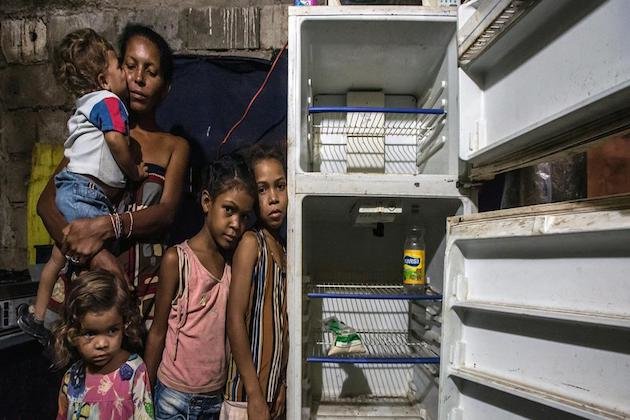Move FM Global News

Venezuelan people paying price of U.S. pressure, says UN official
Aug 11, 2019GENEVA, Switzerland – The U.S. further tightening of screws on Venezuela this week could severely impact human rights in the country, the top UN human rights official warned on Friday.
While the Trump administration is trying to pressure the government of President Nicolss Maduro, it is the people that are paying the price.
Just as Iraq was heavily sanctioned for a decade, and subseuqently Iran in recent years, so too has the pressure has been rising on Venezuela.
Just as Iraq’s economy collapsed under the weight of sanctions, so too have the economies of Iran and Venezuela. In all three cases the United States in particular has made little secret that its aim was and is regime-change.
Venezuela has had a hard time this year as political turmoil has gripped the country following the declaration by Juan Guaido, head of the country’s National Assembly, that he is the legitimate leader. Many countries around the world, led by the U.S. have recognised him as Venezuela’s legitimate leader. This happened in January just as Maduro was being sworn in for a second term.
This week the U.S. expanded sanctions unilaterally.
“The sanctions are extremely broad and fail to contain sufficient measures to mitigate their impact on the most vulnerable sectors of the population”, Michelle Bachelet, High Commissioner for Human Rights said in a statement. “I fear that they will have far-reaching implications on the rights to health and to food in particular, in a country where there are already serious shortages of essential goods”.
According to official figures, between 2013 and 2018, Venezuela’s economy has contracted by 47.6 per cent.
With the new sanctions further restricting economic activity, Ms. Bachelet expressed concern that “businesses and financial institutions are likely to err on the side of caution and completely halt transactions” with Venezuela, rather than risk punishment for violating the sanctions.
“As I have stressed before, the roots of the economic crisis in Venezuela predate the imposition of any economic sanctions”, the High Commission reiterated. “But the economic sanctions imposed in August 2017 and in January 2019 have exacerbated the effects of this dire crisis, and by extension the humanitarian situation, given that most of the foreign exchange earnings derive from oil exports, many of which are linked to the U.S. market”.
She acknowledged that while technically, the latest sanctions do not apply to transactions on food, clothing or medicine intended to be used to relieve human suffering, “they are still likely to significantly exacerbate the crisis for millions of ordinary Venezuelans”, citing “over-compliance by financial institutions” globally that have commercial relations with the U.S. and Venezuela.
“There is a significant body of evidence showing that wide-ranging unilateral sanctions can end up denying people’s fundamental human rights, including their economic rights as well as the rights to food and health, and could place obstacles to the delivery of humanitarian assistance”, she spelled out. “Even carefully targeted sanctions must be subject to stringent human rights safeguards”.
In closing Ms. Bachelet called on all those with influence in Venezuela and the international community to “work together constructively for a political solution to the protracted crisis in the country, by putting the interests and human rights of the long-suffering people of Venezuela above all else.”
(Photo credit: Human Rights Watch).


